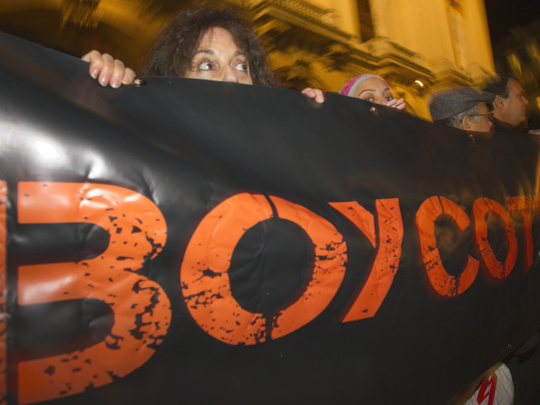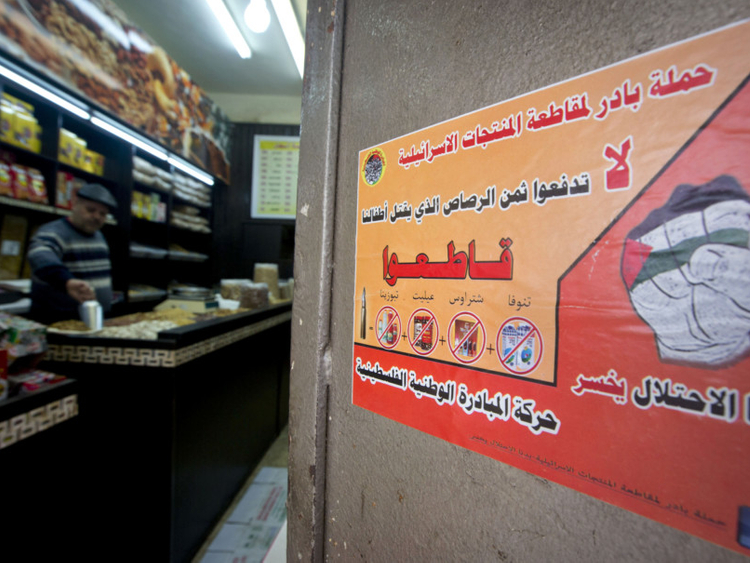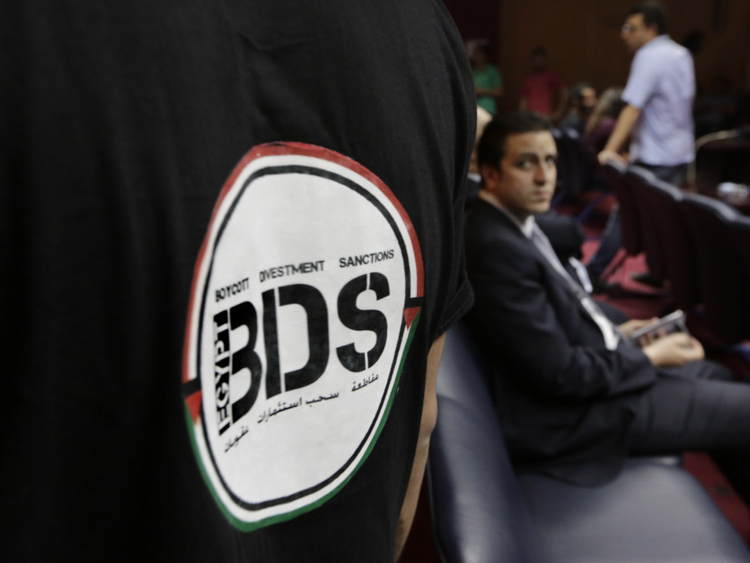
Occupied Jerusalem: Ten years ago, a small group of Palestinian activists had a novel idea: inspired by the anti-apartheid movement, they called for a global boycott campaign against Israel as a nonviolent method to promote the Palestinian struggle for independence.
Long confined to the sidelines, the Boycott, Divestment Sanctions (BDS) campaign appears to be gaining momentum — so much so that Israel has identified it as a strategic threat on a par with Palestinian fighter groups and the Iranian nuclear programme. While Israel claims the movement is rooted in anti-Semitism, its decentralised organisation and language calling for universal human rights have proven difficult to counter, resulting in a string of recent victories that have alarmed Israeli leaders.
“We are now beginning to harvest the fruits of ten years of strategic, morally consistent and undeniably effective BDS campaigning,” said Omar Barghouti, one of the group’s co-founders. “BDS is winning the battles for hearts and minds across the world, despite Israel’s still hegemonic influence among governments in the US and Europe.”
The BDS campaign began as an idea by 170 Palestinian civil society groups in the West Bank in 2005. It has grown into a worldwide network of thousands of volunteers lobbying corporations, artists and academic institutions to sever ties with Israel.
Its members include campus activists, church groups and even liberal American Jews disillusioned by Israeli policies.
Most worrying for Israel, some of the group’s core positions toward products made in West Bank colonies are starting to be embraced by European governments. Although the EU says it opposes boycotts of Israel, it is exploring guidelines for labelling Jewish colony products, which many in Israel fear could be a precursor to a full-fledged ban.
At a time when peace efforts are frozen and show no sign of getting back on track under a new hard-line government, Israelis fear such sentiment will increase.
“The concern is that there will be a spillover to a much wider phenomenon that will become mainstream and erode support for Israel,” said Emmanuel Nahshon of Israel’s Foreign Ministry.
The BDS movement has three goals: to end Israel’s occupation of territories occupied in the 1967 Mideast war, to end discrimination suffered by Palestinian citizens of Israel, and to promote the rights of Palestinian refugees to return to family properties lost in the war surrounding Israel’s creation in 1948.
For Israel, this last position is nothing less than a call for its destruction. Israel opposes the Palestinian right of return, saying a massive influx of refugees would mean the end of the country as a “Jewish” state. The international community favours a two-state solution creating a Palestinian state alongside Israel, and Palestinian President Mahmoud Abbas has indicated willingness to compromise on the refugee issue under a final peace deal.
Barghouti, a US-educated engineer who is also pursuing a graduate degree at Israel’s Tel Aviv University, said the BDS movement is “completely neutral” on the political solution to the conflict. But he said he represents the Palestinian “consensus,” and any deal that “undermines our basic rights under international law and perpetuates the colonial oppression” is unacceptable.
Entitled to all services
As for his attendance at a university he asks others to boycott, he said Palestinians “cannot possibly observe the same boycott guidelines as asked of internationals,” adding that the indigenous population is entitled to all services they can get from the system.
Other BDS leaders have used even tougher language. As’ad Abu Khalil, a California professor, wrote in 2013 that “the movement has to take a clear, categorical stance against the very existence of Israel.”
The BDS movement is led by a West Bank-based national committee, which sets guidelines but allows local branches to decide their own strategy. It focuses on battles with a reasonable chance of success. So some of the biggest companies active in Israel, such as Microsoft and Intel, have not been targeted.
Battles have taken place in US food co-ops and city councils. The movement has helped organise several boycotts by US and British academic unions and has made inroads on American campuses. Roughly a dozen student governments have approved divestment proposals.
Entertainers, including Roger Waters, Elvis Costello and Lauryn Hill have refused to perform in Israel. The BDS movement also claims responsibility for pressuring some large companies to stop or alter operations in Israel, including carbonated drink maker SodaStream, French construction company Veolia and international security firm G4S.
Last month, Britain’s national student union joined the movement. Last week, the top legislative body of the United Church of Christ voted to divest from companies with business in the Israeli-occupied territories, following a similar move by the Presbyterian Church (USA) last year. The Episcopal Church and Mennonite Church USA are also set to consider divestment proposals.
Perhaps the biggest blow was last month’s announcement by the chief executive of French mobile phone giant Orange that he wanted to end his partnership with Israeli carrier Partner Communications. He cited his desire to improve business in the Arab world. Although CEO Stephane Richard later travelled to Israel to apologise, Orange and Partner announced plans to unwind their deal.
Currently, Israel is fending off attempts by the boycotters to compare Israeli policies in the West Bank to South African apartheid.
BDS activists deny being fuelled by anti-Semitism, saying its battle is against Israel, not Jews. They point to a small but growing number of Jewish supporters, including the “Jewish Voice for Peace,” whose 9,000 dues-paying members support a boycott of Israel.
Naomi Dann, JVP’s media coordinator, said the stance stems from frustration over failed US-backed peace efforts. She said that while the group recognises the Jewish attachment to the Holy Land, it can’t come at the expense of Palestinians.
“It’s not about destroying Israel. That’s not the goal at all,” she said. “Full equal rights and a democratic society are more important than preserving the Jewish character of the state.”
It remains difficult to quantify the movement’s actual achievements.
Leading global companies, including Microsoft, Google, Apple and Intel, maintain operations in Israel. Major entertainers, including Paul McCartney, Lady Gaga, Madonna and Rihanna, have performed in Israel in recent years.
A February report by Israel’s Finance Ministry concluded the BDS movement has had a negligible economic impact. But it outlined some worst-case scenarios, including EU government-led boycotts or cancellation of free-trade agreements.
Last month, Jewish billionaires Sheldon Adelson and Haim Saban led a Las Vegas fund-raiser to fight the BDS movement at US universities. Israel’s justice minister, Ayeled Shaked, instructed her ministry to prepare “legal steps” against the movement.
David Makovsky, a senior fellow at the Washington Policy for Near East Policy and former member of US Secretary of State John Kerry’s peace team, said Israel must show it is serious about the creation of a Palestinian state to slow the momentum.
“You can reduce its scope, its impact by making clear when the prime minister ... says he supports two states for two people that he is not then going to say Israel will settle in what will be a future Palestinian state,” he said.














